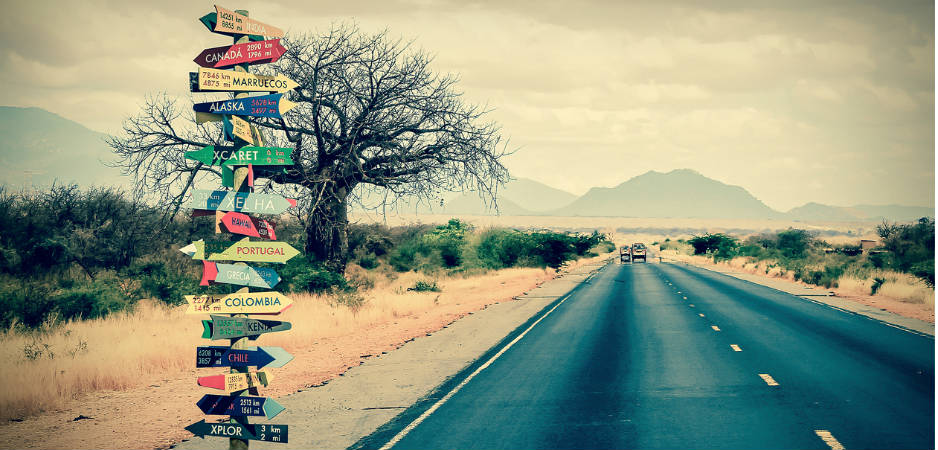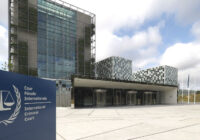The incoming Trump administration is likely to turn isolationist and dial down engagement with Africa, allowing the Chinese to fill the resulting vacuum.
November has proved to be eventful. Apparently, South African President Jacob Zuma’s leadership of the African National Congress (ANC) is hanging by a thread. Derek Hanekom, the tourism minister, has tabled a motion for Zuma to go. Health Minister Aaron Motsoaledi and Public Works Minister Thulas Nxesi have joined the chorus. Obviously, Zuma is fighting back. The stage is set for a bitter political battle that demonstrates that South African democracy is alive and kicking, even if messy and unpredictable.
This month, the events most pertinent for Africa took place far beyond its shores. Fidel Castro is dead and Donald Trump is now president-elect of the US.
Why Do Castro and Trump Matter?
Now that he is dead, far too much is being written about Fidel, as Castro has come to be fondly known. Every newspaper worth its salt is penning obituaries, reports and editorials. Even as Trump has called Castro a “brutal dictator,” many African leaders reacted with “words of condolence, praise and solidarity.” Zuma thanked Fidel for his help and support in the struggle to end apartheid. The presidents of Rwanda, Burundi, Nigeria and other nations joined in.
Fidel matters to Africa because he was a loyal ally in the struggle for liberation. At the height of colonialism, when the imperial powers sought to retain their hold on Africa, Fidel sought to help the forces fighting against them. In Angola, Cuban soldiers helped gain its freedom from Portugal. Since the 1960s, Cuban troops have served in Algeria, Guinea, Guinea Bissau, Equatorial Guinea, Ethiopia, Namibia, Sierra Leone and Libya.
It was not just soldiers that Fidel dispatched to Africa. As Time reported in 2014, Cuba was the first nation to dedicate hundreds of health care workers to West Africa. Cuba emerged as the great hero in the fight against Ebola. While most American news organizations blacked out Cuban efforts, Africans have not forgotten how poor Cuba came to their aid when rich Europeans and Americans waited on the sidelines.
In the US, Fidel is often regarded as a bloodthirsty tyrant intent on World War III and bubonic plague. In Africa, the sentiment is rather different. The iconic Nelson Mandela, better known as Madiba at home, summed up what Africans feel about Fidel: “We are now being advised about Cuba by people who have supported the apartheid regime these last 40 years,” Madiba said on a visit to Havana in 1991. “No honorable man or woman could ever accept advice from people who never cared for us at the most difficult times.”
What Madiba excused was Fidel’s “Big Man” syndrome that saw many jailed, tortured, deported and killed for not seeing eye to eye with this communist big boss hell bent on creating his utopian idyll. Madiba and many in Africa saw an anti-colonial comrade in Fidel yet were blind to the repression and human rights abuses of his authoritarian communist regime.
As readers can gauge by now, Fidel was a complex character with a tortured legacy. US President Barack Obama, a great admirer of Madiba, and a former civil rights lawyer, understands this complexity in historical context, in statecraft and in the theater of international relations. In the March 27 edition of The World This Week, one of the authors hailed Obama’s visit to Cuba and his decision to end the doctrinaire policy of isolating Fidel’s tiny island country. Obama has also engaged deeply with both Asia Pacific and Africa. This US policy of engagement is now under threat as Trump rides into office on the backs of a sentiment of isolationism and protectionism.
Implications for Trade
As per the US Census Bureau, the 2015 US goods exports to Africa were more than $27 billion. Imports were more than $25 billion, giving the US a surplus of over $1.75 for the year. In 2008, exports were a little above $28 billion, imports nearly $113.5 billion and the deficit over $85 billion. Since the Great Recession, the US-Africa trade has been declining and the US deficit has turned into a surplus, albeit a modest one.
This drop in the dollar value of trade is not because Starbucks is buying less coffee from Africa and Hershey’s is buying less cocoa. In large part, this drop in the value of trade is because commodity prices have crashed. This has hurt Africa enormously. In the September edition of Africa This Month, the authors quoted the International Monetary Fund (IMF) to point out that sub-Saharan African growth in 2015 fell to 3.5%, the lowest level in 15 years. If a Trump administration brings in tariffs, African economies would suffer further. US tariffs would disrupt the economic rhythm of the continent, further slowing down growth and increasing unemployment.
These are not ordinary times. Trump’s protectionist rhetoric is a throwback to the pre-World War II era. Africa is somewhat confused by what appears to be a sudden and far-reaching shift in US trade policy. Ironically, it was the World Bank (WB) and the IMF during the time of Ronald Reagan and Margaret Thatcher that arm-twisted African states into accepting structural adjustment programs (SAPs). These painful SAPs were imposed on African nations who were forced to liberalize economies, privatize assets and open their markets to trade. Just when Africans are adapting to global trade after the stress of SAPs, the Trump administration seems bullish about pulling the trade rug from under their feet.
The heavily negotiated Agreement Establishing the World Trade Organization (WTO) heralded the age of freer global trade. Despite acceding to the treaty, African states came away feeling short-changed. They were forced to open their markets to foreign goods and services. However, in an industry such as agriculture, which matters most to African economies, Western nations ensured they retained many subsidy-based protections. This meant that African farmers never gained the opportunity to compete on a level playing field and that the so-called free trade was freer for the West than the rest.
Despite the unfairness of existing trade arrangements, African economies draw some benefits from trade. Trump has already dumped the Trans-Pacific Partnership (TPP) and is likely to tear up existing trade protocols. Principles that the WTO has established to promote global trade are now under threat. For many African states, this amounts to betrayal. The US is shutting the door in their face after inviting them to the party. African leaders will find it very hard to trust and cooperate with an administration undercutting trade rules, especially because its leader has repeatedly disparaged both development and conditions in the continent.
Impact on Aid
Not only would a Trump administration cause a decline in trade, but it would also slash trade with and investments in Africa. At this year’s US-Africa Business Forum in September, the US government made new commitments of $9.1 billion in trade and investment to support the development of Africa’s consumer goods, construction, energy, healthcare, manufacturing, telecommunications and transportation sectors. These commitments were made with the assumption that the prospects of a Trump presidency were remote. Now, these commitments might come to naught.
 Fair Observer provides you deep and diverse insights for free. Remember that we still have to pay for servers, website maintenance and much more. So, donate now to keep us free, fair and independent.
Fair Observer provides you deep and diverse insights for free. Remember that we still have to pay for servers, website maintenance and much more. So, donate now to keep us free, fair and independent.
On July 26, 2015, Trump had some choice words for Obama’s tour of Africa. In his inimitable way, Trump tweeted: “Obama is in Africa pledging 1 billion dollars to help them. How about that money to help America[?].” The soon-to-be president was playing on popular fears. In a 2015 poll by the Kaiser Family Foundation, Americans estimated 26% of the federal budget was spent on foreign aid. The real amount, according to the Center for Global Development, is less than 1% of the federal budget. This amount might shrink further.
Many in Washington and elsewhere argue that aid does little good. In 2009, Dambisa Moyo argued that aid is hurting Africa, trapping nations in a cycle of corruption, slower economic growth and poverty. Doug Bandow of the Cato Institute, who once served Ronald Reagan, makes a similar argument. He points out that despite $30 billion of aid to Egypt over the last 30 years, the country remains poor and undemocratic.
Bandow argues that “waste, inefficiency and corruption” end up benefiting corrupt elites. Furthermore, he suggests aid leads to dependency, retards reform and impedes growth. Bandow makes the added claim that most developing countries are tangential to American security. For him, aid is neither helpful to Africans nor in American national interest.
National Public Radio (NPR) paints a different picture. It turns out that the largest portion of foreign aid goes to health. In 2014, as much as a fifth—about $3.1 billion—was spent on HIV/AIDS. Maternal and child health accounted for $530 million while malaria soaked up $470 million that year. The idea that Americans spend a lot of money on aid is nonsense. As Phyllis Pomerantz, a professor of public policy at Duke University, told NPR, among first world countries, Uncle Sam, with a nearly $18 trillion GDP in 2015, has “one of the lowest percentages of gross national income donated to foreign aid.”
NPR implies that Uncle Sam is really Uncle Scrooge. More importantly, it seems that the public health benefits to the planet in general and to the US in particular are so significant that they justify the costs. After all, in the day of modern air travel, super-viruses like Ebola could easily come to American shores.
From an African perspective, aid from the US matters because a small percentage of a large GDP is still a substantial amount. Besides, aid to sub-Saharan Africa nearly quadrupled, from roughly $1.94 billion in 2002 to $7.08 billion, in 2012. Obama has continued to support Africa in his second term. The US had ignored Africa a while earlier. In the 1990s, the US cut aid to the continent. Africa did not quite matter then, as the US was no longer competing with the Soviet Union following the end to the Cold War. Today, the US is back to being the leading donor of humanitarian assistance to Africa, particularly in the area of emergency food aid. Therefore, cutting aid to Africa risks increasing hunger, disease and strife in the short if not long run.
Women’s Health Might Suffer
As stated above, most aid goes into public health and, arguably, the money spent on women’s health is exceedingly beneficial. Maggie Fox writes that money from the US is enabling 30% of women and girls in eastern and southern Africa to use modern methods of contraception. The Guttmacher Institute informed Fox that the US spends $607 million of its foreign aid on birth control. The institute claims this prevented 6 million births and 2.3 million abortions. It also goes on to say that “for every $10 million cut from this aid, 40,000 fewer women and couples would get birth control help, 44,000 more unplanned-for babies would be born and 38,000 more abortions would occur.”
Liberal American commentators fear that the Trump administration could not only cut money for health programs but it could also withhold money from organizations conducting abortions. Mike Pence, the new vice president, is a devout Christian who opposes both abortion and stem-cell research. Admittedly, most of Africa opposes abortion as well. However, Pence is likely to lead the charge on squeezing funding for organizations such as the United Nations Population Fund (UNPF) that do great work but offer abortion in certain regions as an option for women in case of rape, risk to their health or other extreme circumstances. This could hit the the most vulnerable women and girls in Africa hardest because they may lose access to essential healthcare.
This has happened before under George W. Bush, who shared Pence’s religious convictions, and the effects on women’s health in the continent were catastrophic. In fact, Stanford researchers Eran Bendavid and Grant Miller found that restricting funding for family planning organizations that support abortions actually increased abortions in Africa. One of the first acts of Obama as president was to reverse this Bush policy. The conviction of the American right about the absolute sanctity of life, shared by many Africans as well, might throw the proverbial baby out with the bathwater. Reversing Obama’s decision and reinstating a failed policy would lower the availability of contraceptives, increase pregnancy rates, lead to more abortions and hurt African women yet again.
Interesting Times
One of the authors often keeps repeating the adage that power abhors a vacuum. The forthcoming US disengagement with Africa will see another power shine the light on it. As is now public knowledge, China has been dramatically expanding its presence in Africa for the last few decades.
In a brilliant March 2015 World Bank report, Miria Pigato and Wenxia Tang chronicle how trade between China and sub-Saharan Africa has “rapidly intensified since the late 1990s.” In 1985, barely 2.3% of sub-Saharan Africa’s trade was with China. In 2015, this figure was 25%. For China, a third of its energy now comes from sub-Saharan Africa. By 2013, China was sub-Saharan Africa’s largest export and development partner with the annual trade amounting to $170 billion. Note, this dwarfs the $52 billion figure for 2015 US-Africa trade, that includes North Africa.
Pigato and Tang point out that China is stepping up the scope and scale of its engagement with breathtaking ferocity. In 2013, $3.1 billion flowed into Africa as foreign direct investment (FDI) from China. In fact, FDI has grown at a staggering annual rate of 50% between 2004 and 2013. Already, 2,200 Chinese enterprises are operating in Africa and most of them are private enterprises. Chinese farmers are flowing into countries like Zambia and Zimbabwe even as their engineers build roads, railways and ports across the continent. Perhaps most importantly, Chinese banks have, during 2003-2011, made loans in Africa of $52.8 billion, about 2.8% of China’s GDP.
As is the norm, such a deepening of economic ties has been followed by an increase in diplomatic contacts, bilateral aid and cooperation initiatives. In 2000, China kicked off the Forum on China-Africa Cooperation and many argue that the increase in US aid to Africa was merely a strategic decision to contain the Middle Kingdom. An isolationist Trump administration is likely to deem Africa as neither important nor strategic enough to merit either investment or attention.
The US retreat in Africa might be accompanied by a Chinese advance. In Djibouti, strategically located in the Horn of Africa at the mouth of the Red Sea en route to the Suez Canal, the Middle Kingdom is building its first overseas naval base. India is sweating in fear as China’s “string of pearls” of military alliances rings this bumbling subcontinent. Chinese allies now include Bangladesh, Myanmar and Sri Lanka, not to mention Nepal and Pakistan. Needless to say, neither Europe nor the US are too thrilled about Djibouti either.
Trump’s forthcoming retreat from Africa would abandon an entire geographic theater to China. The US domination of the global economy rests on an intricate spiderweb of institutions, rules and engagements that it has woven together after World War II. The UN, the WB, the IMF and the WTO are all US creations. Similarly, the pitiable amount of aid that the US doles out enables it to reap peace dividends and international legitimacy. For instance, Obama’s stress on governance and democracy as key issues for Africa along with his Kenyan heritage have greatly augmented what Joseph Nye has called the “soft power” of the US. With Trump in the White House, this power to win hearts and minds that Nye champions will decline and the US is likely to experience a global loss of influence. If the Chinese trade, aid, fight pirates and guarantee security in Africa, then why will Africans turn to Uncle Sam?
To end with a Chinese proverb, with Trump in the saddle, the US, Africa and the rest of the world will be living in “interesting times” indeed.
The views expressed in this article are the author’s own and do not necessarily reflect Fair Observer’s editorial policy.
Photo Credit: czekma13
Support Fair Observer
We rely on your support for our independence, diversity and quality.
For more than 10 years, Fair Observer has been free, fair and independent. No billionaire owns us, no advertisers control us. We are a reader-supported nonprofit. Unlike many other publications, we keep our content free for readers regardless of where they live or whether they can afford to pay. We have no paywalls and no ads.
In the post-truth era of fake news, echo chambers and filter bubbles, we publish a plurality of perspectives from around the world. Anyone can publish with us, but everyone goes through a rigorous editorial process. So, you get fact-checked, well-reasoned content instead of noise.
We publish 2,500+ voices from 90+ countries. We also conduct education and training programs
on subjects ranging from digital media and journalism to writing and critical thinking. This
doesn’t come cheap. Servers, editors, trainers and web developers cost
money.
Please consider supporting us on a regular basis as a recurring donor or a
sustaining member.
Will you support FO’s journalism?
We rely on your support for our independence, diversity and quality.






